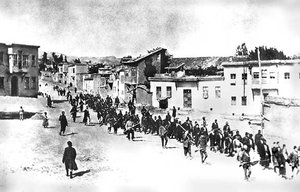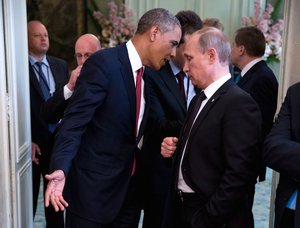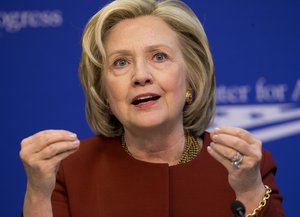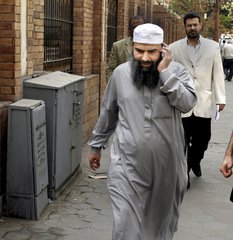- published: 07 May 2011
- views: 896
-
remove the playlistNikolas Kompridis
- remove the playlistNikolas Kompridis
- published: 22 Jan 2016
- views: 16
- published: 08 Dec 2014
- views: 384
- published: 15 Nov 2014
- views: 623
- published: 22 Jan 2016
- views: 0
- published: 22 Jan 2016
- views: 4
- published: 22 Jan 2016
- views: 5
- published: 22 Jan 2016
- views: 6
- published: 22 Jan 2016
- views: 4
- published: 01 Oct 2014
- views: 47

Nikolas Kompridis is a professor at the Centre for Citizenship and Public Policy at the University of Western Sydney. His scholarly work addresses a wide range of subjects in contemporary social and political philosophy, as well as in aesthetics and philosophy of culture. Kompridis' published works cover topics that include: critical theory; democratic theory; theories of agency and action; theories of rationality; theories of identity, recognition, and culture; the role of social criticism in social change; the renewal of romanticism; and issues in philosophy of art, literature, music and film.
After gaining his Ph.D at Toronto's York University, Kompridis was invited to work with the renowned philosopher and Frankfurt School standard-bearer Jürgen Habermas. However, he was eventually troubled by what he saw as serious shortcomings in the German philosopher's work. The result was the publication of Critique and Disclosure: Critical Theory between Past and Future, a book that, while drawing on many of his insights, is intensely critical of Habermas. In addition to presenting a "meta-critique" of his thought, it offers an alternative interpretation of Frankfurt School critical theory, based on alternative conceptions of agency, reason, and argument, and alternative sources of normativity.
This article is licensed under the Creative Commons Attribution-ShareAlike 3.0 Unported License, which means that you can copy and modify it as long as the entire work (including additions) remains under this license.
- Loading...

-
 12:29
12:29The Memory of Loss
The Memory of LossThe Memory of Loss
Professor Nikolas Kompridis discusses the memory of loss in connection to the Museum and changing landscapes beyond its walls. -
 12:58
12:58Nikolas Kompridis
Nikolas KompridisNikolas Kompridis
Nikolas Kompridis Nikolas Kompridis is a Canadian philosopher and political theorist.His major published work addresses the direction and orientation of Frankfurt School critical theory; the legacy of philosophical romanticism; and the aesthetic dimension(s) of politics. =======Image-Copyright-Info======== License: Creative Commons Attribution-Share Alike 3.0 (CC BY-SA 3.0) LicenseLink: http://creativecommons.org/licenses/by-sa/3.0 Author-Info: Walkinxyz Image Source: https://en.wikipedia.org/wiki/File:Nikolas_Kompridis.png =======Image-Copyright-Info======== -Video is targeted to blind users Attribution: Article text available under CC-BY-SA image source in video https://www.youtube.com/watch?v=Zvu8QLxYtD8 -
 57:41
57:41What Does It Mean to Be Free? A Stirring History of American Freedom (1998)
What Does It Mean to Be Free? A Stirring History of American Freedom (1998)What Does It Mean to Be Free? A Stirring History of American Freedom (1998)
Political freedom (also known as political autonomy or political agency) is a central concept in Western history and political thought and one of the most important (real or ideal) features of democratic societies. It has been described as a relationship free of oppression[2] or coercion;[3] the absence of disabling conditions for an individual and the fulfillment of enabling conditions;[4] or the absence of lived conditions of compulsion, e.g. economic compulsion, in a society.[5] Although political freedom is often interpreted negatively as the freedom from unreasonable external constraints on action,[6] it can also refer to the positive exercise of rights, capacities and possibilities for action, and the exercise of social or group rights.[7] The concept can also include freedom from "internal" constraints on political action or speech (e.g. social conformity, consistency, or "inauthentic" behaviour.)[8] The concept of political freedom is closely connected with the concepts of civil liberties and human rights, which in democratic societies are usually afforded legal protection from the state. Various groups along the political spectrum naturally differ on what they believe constitutes "true" political freedom. Left wing political philosophy generally couples the notion of freedom with that of positive liberty, or the enabling of a group or individual to determine their own life or realize their own potential. Freedom, in this sense, may include freedom from poverty, starvation, treatable disease, and oppression, as well as freedom from force and coercion, from whomever they may issue. Friedrich Hayek, a well-known classical liberal, criticized this as a misconception of freedom: [T]he use of "liberty" to describe the physical "ability to do what I want", the power to satisfy our wishes, or the extent of the choice of alternatives open to us ... has been deliberately fostered as part of the socialist argument ... the notion of collective power over circumstances has been substituted for that of individual liberty.[9] Many social anarchists see negative and positive liberty as complementary concepts of freedom. They describe the negative liberty-centric view endorsed by capitalists as "selfish freedom".[10] Some notable philosophers, such as Alasdair MacIntyre, have theorized freedom in terms of our social interdependence with other people.[11] According to political philosopher Nikolas Kompridis, the pursuit of freedom in the modern era can be broadly divided into two motivating ideals: freedom as autonomy or independence; and freedom as the ability to cooperatively initiate a new beginning.[12] Political freedom has also been theorized in its opposition to (and a condition of) "power relations", or the power of "action upon actions," by Michel Foucault.[13] It has also been closely identified with certain kinds of artistic and cultural practice by Cornelius Castoriadis, Antonio Gramsci, Herbert Marcuse, Jacques Ranciere, and Theodor Adorno. Environmentalists often argue that political freedoms should include some constraint on use of ecosystems. They maintain there is no such thing, for instance, as "freedom to pollute" or "freedom to deforest" given that such activities create negative externalities. The popularity of SUVs, golf, and urban sprawl has been used as evidence that some ideas of freedom and ecological conservation can clash. This leads at times to serious confrontations and clashes of values reflected in advertising campaigns, e.g. that of PETA regarding fur. John Dalberg-Acton stated that "The most certain test by which we judge whether a country is really free is the amount of security enjoyed by minorities." http://en.wikipedia.org/wiki/Political_freedom In the United States Supreme Court decision Griswold v. Connecticut, Justice William O. Douglas argued that liberties relating to personal relationships, such as marriage, have a unique primacy of place in the hierarchy of freedoms.[18] Jacob M. Appel has summarized this principle: I am grateful that I have rights in the proverbial public square – but, as a practical matter, my most cherished rights are those that I possess in my bedroom and hospital room and death chamber. Most people are far more concerned that they can control their own bodies than they are about petitioning Congress.[19] A school of thought popular among U.S. libertarians holds that there is no tenable distinction between the two sorts of liberty – that they are, indeed, one and the same, to be protected (or opposed) together. In the context of U.S. constitutional law, for example, they point out that the constitution twice lists "life, liberty, and property" without making any distinctions within that troika. Anarcho-Individualists, such as Max Stirner, demanded the utmost respect for the liberty of the individual. http://en.wikipedia.org/wiki/Liberty -
 19:26
19:26Mimesis
MimesisMimesis
Mimesis (Ancient Greek: μίμησις (mīmēsis), from μιμεῖσθαι (mīmeisthai), "to imitate," from μῖμος (mimos), "imitator, actor") is a critical and philosophical term that carries a wide range of meanings, which include imitation, representation, mimicry, imitatio, receptivity, nonsensuous similarity, the act of resembling, the act of expression, and the presentation of the self. In ancient Greece, mimesis was an idea that governed the creation of works of art, in particular, with correspondence to the physical world understood as a model for beauty, truth, and the good. Plato contrasted mimesis, or imitation, with diegesis, or narrative. After Plato, the meaning of mimesis eventually shifted toward a specifically literary function in ancient Greek society, and its use has changed and been reinterpreted many times since then. This video is targeted to blind users. Attribution: Article text available under CC-BY-SA Creative Commons image source in video -
 3:27
3:27Nicolas Coster
Nicolas CosterNicolas Coster
Nicolas Coster Nicolas Dwynn Coster (born December 3, 1933) is a British actor, most known for his work in daytime drama and as a character actor on nighttime television series, such as Buck Rogers in the 25th Century and Star Trek: The Next Generation. -Video is targeted to blind users Attribution: Article text available under CC-BY-SA image source in video https://www.youtube.com/watch?v=GCMpaMfC2Qo -
 1:31
1:31Nicolette Krebitz
Nicolette KrebitzNicolette Krebitz
Nicolette Krebitz Nicolette Krebitz (born 2 September 1972 in Berlin, Germany) is a director, actress, model, and singer.She is often credited as Coco in her creative works. =======Image-Copyright-Info======== License: Creative Commons Attribution-Share Alike 3.0 (CC BY-SA 3.0) LicenseLink: http://creativecommons.org/licenses/by-sa/3.0 Author-Info: Claus Ableiter Image Source: https://en.wikipedia.org/wiki/File:Nicolette_Krebitz_(left),_Anne_Hoegh_Krohn_(right),_2009.jpg =======Image-Copyright-Info======== -Video is targeted to blind users Attribution: Article text available under CC-BY-SA image source in video https://www.youtube.com/watch?v=d8A7mdeHf-Y -
 6:49
6:49Nihon Falcom
Nihon FalcomNihon Falcom
Nihon Falcom Nihon Falcom Corporation (日本ファルコム株式会社, Nihon Farukomu Kabushiki-kaisha?) is a Japanese video game company.The company was founded in March 1981 by Masayuki Kato. =======Image-Copyright-Info======== License: Creative Commons Attribution-Share Alike 3.0 (CC BY-SA 3.0) LicenseLink: http://creativecommons.org/licenses/by-sa/3.0 Author-Info: acrofan.com Image Source: https://en.wikipedia.org/wiki/File:Toshihiro_Kondo.jpg =======Image-Copyright-Info======== -Video is targeted to blind users Attribution: Article text available under CC-BY-SA image source in video https://www.youtube.com/watch?v=06b_3WMAp7Y -
 4:47
4:47Nicomachus
NicomachusNicomachus
Nicomachus Nicomachus, or Nicomachus of Gerasa, (Greek: Νικόμαχος; c.60 – c. -Video is targeted to blind users Attribution: Article text available under CC-BY-SA image source in video https://www.youtube.com/watch?v=nVKkWGig1rU -
 7:25
7:25Niels Bohr
Niels BohrNiels Bohr
Niels Bohr Niels Henrik David Bohr (Danish: [nels ˈb̥oɐ̯ˀ]; 7 October 1885 – 18 November 1962) was a Danish physicist who made foundational contributions to understanding atomic structure and quantum theory, for which he received the Nobel Prize in Physics in 1922.Bohr was also a philosopher and a promoter of scientific research. =======Image-Copyright-Info======= Image is in public domainImage Source: https://en.wikipedia.org/wiki/File:Niels_Bohr_Date_Unverified_LOC.jpg =======Image-Copyright-Info======== -Video is targeted to blind users Attribution: Article text available under CC-BY-SA image source in video https://www.youtube.com/watch?v=bKEDxc3GHtM -
 21:55
21:55Argument
ArgumentArgument
In logic and philosophy, an argument is an attempt to persuade someone of something, by giving reasons for accepting a particular conclusion as evident. The general form of an argument in a natural language is that of premises (typically in the form of propositions, statements or sentences) in support of a claim: the conclusion. The structure of some arguments can also be set out in a formal language, and formally defined "arguments" can be made independently of natural language arguments, as in math, logic and computer science. In a typical deductive argument, the premises are meant to provide a guarantee of the truth of the conclusion, while in an inductive argument, they are thought to provide reasons supporting the conclusion's probable truth. The standards for evaluating non-deductive arguments may rest on different or additional criteria than truth, for example, the persuasiveness of so-called "indispensability claims" in transcendental arguments, the quality of hypotheses in retroduction, or even the disclosure of new possibilities for thinking and acting. This video is targeted to blind users. Attribution: Article text available under CC-BY-SA Creative Commons image source in video
- Albert Borgmann
- Axel Honneth
- Bill Joy
- Consciousness
- Critical theory
- Culture
- Francis Fukuyama
- Frankfurt School
- Fred R. Dallmayr
- Genetic engineering
- German idealism
- Harry Frankfurt
- Hubert Dreyfus
- Human
- Hybridity
- Inter-disciplinary
- Jacques Derrida
- Jean-Luc Godard
- Jürgen Habermas
- Keynote
- Martin Heidegger
- Maurice Merlau-Ponty
- Michael Sandel
- MIT
- Modernity
- Nancy Fraser
- Nanotechnology
- Nikolas Kompridis
- Norm (philosophy)
- Oxford University
- Person
- Philosophy of art
- Political philosophy
- Posthuman
- Rainer Maria Rilke
- Ralph Waldo Emerson
- Rationality
- Reason
- Robert Pippin
- Robotics
- Romanticism
- Seyla Benhabib
- Social change
- Social philosophy
- Stanford
- Stanley Cavell
- Synthetic biology
- Transhumanist
- Utopian
- Walter Benjamin
- Wikipedia Persondata
- William Wordsworth
- World disclosure
- Albert Borgmann
- Axel Honneth
- Bill Joy
- Francis Fukuyama
- Harry Frankfurt
- Hubert Dreyfus
- Jacques Derrida
- Jürgen Habermas
- Martin Heidegger
- Michael Sandel
- Nancy Fraser
- Nikolas Kompridis
- Person
- Rainer Maria Rilke
- Ralph Waldo Emerson
- Seyla Benhabib
- Stanley Cavell
- Walter Benjamin
- Wikipedia Persondata
- William Wordsworth
-

The Memory of Loss
Professor Nikolas Kompridis discusses the memory of loss in connection to the Museum and changing landscapes beyond its walls. -

Nikolas Kompridis
Nikolas Kompridis Nikolas Kompridis is a Canadian philosopher and political theorist.His major published work addresses the direction and orientation of Frankfurt School critical theory; the legacy of philosophical romanticism; and the aesthetic dimension(s) of politics. =======Image-Copyright-Info======== License: Creative Commons Attribution-Share Alike 3.0 (CC BY-SA 3.0) LicenseLink: http://creativecommons.org/licenses/by-sa/3.0 Author-Info: Walkinxyz Image Source: https://en.wikipedia.org/wiki/File:Nikolas_Kompridis.png =======Image-Copyright-Info======== -Video is targeted to blind users Attribution: Article text available under CC-BY-SA image source in video https://www.youtube.com/watch?v=Zvu8QLxYtD8 -

What Does It Mean to Be Free? A Stirring History of American Freedom (1998)
Political freedom (also known as political autonomy or political agency) is a central concept in Western history and political thought and one of the most important (real or ideal) features of democratic societies. It has been described as a relationship free of oppression[2] or coercion;[3] the absence of disabling conditions for an individual and the fulfillment of enabling conditions;[4] or the absence of lived conditions of compulsion, e.g. economic compulsion, in a society.[5] Although political freedom is often interpreted negatively as the freedom from unreasonable external constraints on action,[6] it can also refer to the positive exercise of rights, capacities and possibilities for action, and the exercise of social or group rights.[7] The concept can also include freedom from "i... -

Mimesis
Mimesis (Ancient Greek: μίμησις (mīmēsis), from μιμεῖσθαι (mīmeisthai), "to imitate," from μῖμος (mimos), "imitator, actor") is a critical and philosophical term that carries a wide range of meanings, which include imitation, representation, mimicry, imitatio, receptivity, nonsensuous similarity, the act of resembling, the act of expression, and the presentation of the self. In ancient Greece, mimesis was an idea that governed the creation of works of art, in particular, with correspondence to the physical world understood as a model for beauty, truth, and the good. Plato contrasted mimesis, or imitation, with diegesis, or narrative. After Plato, the meaning of mimesis eventually shifted toward a specifically literary function in ancient Greek society, and its use has changed and been rein... -

Nicolas Coster
Nicolas Coster Nicolas Dwynn Coster (born December 3, 1933) is a British actor, most known for his work in daytime drama and as a character actor on nighttime television series, such as Buck Rogers in the 25th Century and Star Trek: The Next Generation. -Video is targeted to blind users Attribution: Article text available under CC-BY-SA image source in video https://www.youtube.com/watch?v=GCMpaMfC2Qo -

Nicolette Krebitz
Nicolette Krebitz Nicolette Krebitz (born 2 September 1972 in Berlin, Germany) is a director, actress, model, and singer.She is often credited as Coco in her creative works. =======Image-Copyright-Info======== License: Creative Commons Attribution-Share Alike 3.0 (CC BY-SA 3.0) LicenseLink: http://creativecommons.org/licenses/by-sa/3.0 Author-Info: Claus Ableiter Image Source: https://en.wikipedia.org/wiki/File:Nicolette_Krebitz_(left),_Anne_Hoegh_Krohn_(right),_2009.jpg =======Image-Copyright-Info======== -Video is targeted to blind users Attribution: Article text available under CC-BY-SA image source in video https://www.youtube.com/watch?v=d8A7mdeHf-Y -

Nihon Falcom
Nihon Falcom Nihon Falcom Corporation (日本ファルコム株式会社, Nihon Farukomu Kabushiki-kaisha?) is a Japanese video game company.The company was founded in March 1981 by Masayuki Kato. =======Image-Copyright-Info======== License: Creative Commons Attribution-Share Alike 3.0 (CC BY-SA 3.0) LicenseLink: http://creativecommons.org/licenses/by-sa/3.0 Author-Info: acrofan.com Image Source: https://en.wikipedia.org/wiki/File:Toshihiro_Kondo.jpg =======Image-Copyright-Info======== -Video is targeted to blind users Attribution: Article text available under CC-BY-SA image source in video https://www.youtube.com/watch?v=06b_3WMAp7Y -

Nicomachus
Nicomachus Nicomachus, or Nicomachus of Gerasa, (Greek: Νικόμαχος; c.60 – c. -Video is targeted to blind users Attribution: Article text available under CC-BY-SA image source in video https://www.youtube.com/watch?v=nVKkWGig1rU -

Niels Bohr
Niels Bohr Niels Henrik David Bohr (Danish: [nels ˈb̥oɐ̯ˀ]; 7 October 1885 – 18 November 1962) was a Danish physicist who made foundational contributions to understanding atomic structure and quantum theory, for which he received the Nobel Prize in Physics in 1922.Bohr was also a philosopher and a promoter of scientific research. =======Image-Copyright-Info======= Image is in public domainImage Source: https://en.wikipedia.org/wiki/File:Niels_Bohr_Date_Unverified_LOC.jpg =======Image-Copyright-Info======== -Video is targeted to blind users Attribution: Article text available under CC-BY-SA image source in video https://www.youtube.com/watch?v=bKEDxc3GHtM -

Argument
In logic and philosophy, an argument is an attempt to persuade someone of something, by giving reasons for accepting a particular conclusion as evident. The general form of an argument in a natural language is that of premises (typically in the form of propositions, statements or sentences) in support of a claim: the conclusion. The structure of some arguments can also be set out in a formal language, and formally defined "arguments" can be made independently of natural language arguments, as in math, logic and computer science. In a typical deductive argument, the premises are meant to provide a guarantee of the truth of the conclusion, while in an inductive argument, they are thought to provide reasons supporting the conclusion's probable truth. The standards for evaluating non-deductive...
The Memory of Loss
- Order: Reorder
- Duration: 12:29
- Updated: 07 May 2011
- views: 896
- published: 07 May 2011
- views: 896
Nikolas Kompridis
- Order: Reorder
- Duration: 12:58
- Updated: 22 Jan 2016
- views: 16
- published: 22 Jan 2016
- views: 16
What Does It Mean to Be Free? A Stirring History of American Freedom (1998)
- Order: Reorder
- Duration: 57:41
- Updated: 08 Dec 2014
- views: 384
- published: 08 Dec 2014
- views: 384
Mimesis
- Order: Reorder
- Duration: 19:26
- Updated: 15 Nov 2014
- views: 623
- published: 15 Nov 2014
- views: 623
Nicolas Coster
- Order: Reorder
- Duration: 3:27
- Updated: 22 Jan 2016
- views: 0
- published: 22 Jan 2016
- views: 0
Nicolette Krebitz
- Order: Reorder
- Duration: 1:31
- Updated: 22 Jan 2016
- views: 4
- published: 22 Jan 2016
- views: 4
Nihon Falcom
- Order: Reorder
- Duration: 6:49
- Updated: 22 Jan 2016
- views: 5
- published: 22 Jan 2016
- views: 5
Nicomachus
- Order: Reorder
- Duration: 4:47
- Updated: 22 Jan 2016
- views: 6
- published: 22 Jan 2016
- views: 6
Niels Bohr
- Order: Reorder
- Duration: 7:25
- Updated: 22 Jan 2016
- views: 4
- published: 22 Jan 2016
- views: 4
Argument
- Order: Reorder
- Duration: 21:55
- Updated: 01 Oct 2014
- views: 47
- published: 01 Oct 2014
- views: 47
- Playlist
- Chat
- Playlist
- Chat

The Memory of Loss
- Report rights infringement
- published: 07 May 2011
- views: 896

Nikolas Kompridis
- Report rights infringement
- published: 22 Jan 2016
- views: 16

What Does It Mean to Be Free? A Stirring History of American Freedom (1998)
- Report rights infringement
- published: 08 Dec 2014
- views: 384

Mimesis
- Report rights infringement
- published: 15 Nov 2014
- views: 623

Nicolas Coster
- Report rights infringement
- published: 22 Jan 2016
- views: 0

Nicolette Krebitz
- Report rights infringement
- published: 22 Jan 2016
- views: 4

Nihon Falcom
- Report rights infringement
- published: 22 Jan 2016
- views: 5

Nicomachus
- Report rights infringement
- published: 22 Jan 2016
- views: 6

Niels Bohr
- Report rights infringement
- published: 22 Jan 2016
- views: 4

Argument
- Report rights infringement
- published: 01 Oct 2014
- views: 47
Gay Rights Activist Hacked To Death In Bangladesh
Edit WorldNews.com 26 Apr 2016Why isn't the killing of 1.5 million Armenians officially called a 'genocide'?
Edit The Independent 25 Apr 2016Obama Says Putin Trying To Undermine European Unity
Edit Radio Free Europe 26 Apr 2016Koch: Clinton May Be Better Candidate Than Current GOP
Edit WorldNews.com 25 Apr 2016Former CIA Operative Faces Extradition To Italy For 2003 Extraordinary Rendition
Edit WorldNews.com 25 Apr 2016Charles Taylor to launch ISJ (ACU - Australian Catholic University)
Edit Public Technologies 06 Apr 2016- 1
- 2
- 3
- 4
- 5
- Next page »







